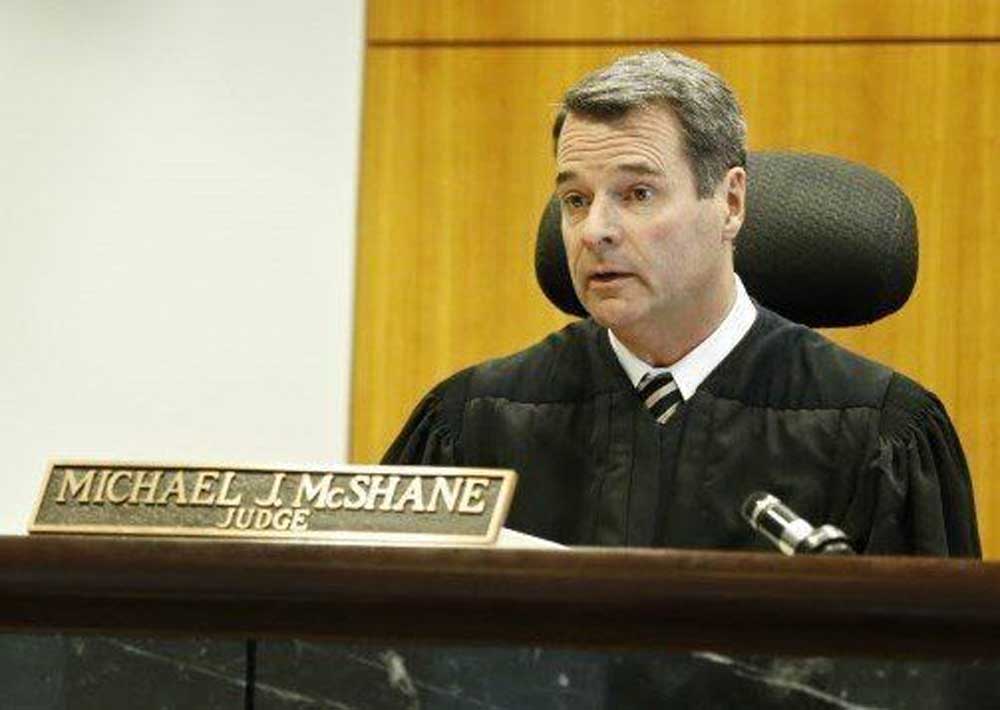Oregon to ask 9th Circuit to suspend judge’s order releasing defendants held in jail without a lawyer
Published 6:00 am Wednesday, November 8, 2023

- Judge Michael McShane.
U.S. District Judge Michael J. McShane said Tuesday he plans to delay for one week his order requiring the release of criminal defendants held in jail in Oregon without a lawyer to give the 9th Circuit time to consider the state’s motion to suspend the order pending an appeal.
Attorney James Aaron said the state will file a motion with the 9th U.S. Circuit Court of Appeals Wednesday to put McShane’s order on hold while it considers the state’s appeal. The state this week filed a notice of its intent to appeal.
McShane agreed only to push back the effective date of his order to Nov. 23 from his original Nov. 16 date.
McShane’s order calls for county sheriffs across the state to release people held in jail on criminal allegations if they don’t get a lawyer appointed to defend them within seven days of their first court appearance.
The release order stemmed from a lawsuit filed by the Oregon Federal Public Defender’s Office in summer on behalf of Washington County criminal defendants, asking the court to dismiss their cases due to a lack of legal representation amid an ongoing public defense crisis.
McShane explained why he chose seven days without a lawyer as the trigger time requiring a defendant’s release. He said a person facing a felony allegation would likely be back in court before a judge to appear on an indictment seven days after their first court appearance or learn no indictment had been returned.
“I realize it’s somewhat arbitrary, but it’s the best and most reasonable number of days that I could come up with in terms of when counsel needs to be appointed,” he said during Tuesday’s status hearing in the case.
When a person held without a lawyer reappears in court on an indictment, state judge and prosecutor could then set conditions for the person’s release, McShane said.
McShane plans to file an amended order by week’s end to instruct state judges on how he intends his order to be carried out based on various scenarios that might arise.
For example, he said judges shouldn’t set bail for those who must be released.
“I’m certainly hoping that there’s not a judge angry that they’re going to have to release somebody who is going to set an unrealistic condition in order to revoke the release,” McShane said. “I hope all judges will do this in good faith and set release conditions that are reasonable.”
Those include, he said, requiring defendants to return to court as scheduled, not leave the state without permission or require discretionary conditions such as substance abuse treatment, urinalysis tests, electronic monitoring or a curfew.
Jackson County counsel Joel C. Benton said Sheriff Nate Sickler will undoubtedly have to release people from jail because the “state does not provide sufficient public defenders down here to ensure everyone has counsel.”
Jackson County has more more unrepresented defendants in jail than any other Oregon county, Benton said.
As of Tuesday, 44 people were being held in jail in Jackson County on criminal charges who had not been appointed a lawyer, according to an Oregon Circuit Courts dashboard. That’s compared to 33 people in Multnomah County, four in Washington County , three in Marion County and two in Clackamas County. As of Tuesday, there was a total of 130 people held in custody who had no lawyers.
McShane said if someone violates their release conditions, it’ll be up to the state judge to revoke or modify the conditions as needed. The seven-day clock won’t be reset, the judge said. “I”m not trying to create that kind of cycle,” he said.
Yet McShane warned, “If judges in a particular county are setting untenable restraints in the community in order to find people in violation, the petitioners are going to be bringing a contempt hearing back in front of me.”
Assistant Federal Public Defender Julie Vandiver said she’d object to someone being sent back to custody if that person violated the conditions of their release and still hadn’t been appointed a defense lawyer.
McShane said he recognized that concern but said state judges must “consider the safety of the community and the safety of victims” and he didn’t want to hamstring them.
“It’s not by any means a perfect order,” McShane said. “It’s a bit of a blunt instrument; it’s blunt on the government and it’s going to have some bluntness dealing with particular situations of defendants as well.”
Vandiver said the Federal Public Defender’s Office also will challenge the state’s move to put a hold on McShane’s order. What McShane’s order calls for is “what is already constitutionally and statutorily required” and won’t burden the state, Vandiver said.
The Oregon Office of Public Defense Services pays attorneys to represent indigent defendants. Those services are provided by nonprofit law firms, like Metropolitan Public Defender in Portland and Hillsboro, and independent lawyers who take on public defense cases.
Public defense leaders say the system suffers from a chronic shortage of lawyers, stemming in part from long-standing demands for higher pay and lower caseloads. High rates of turnover and burnout within the ranks of public defenders has exacerbated the shortage. The Legislature has pumped millions into public defense, but state leaders said that hasn’t been enough to overcome deeper problems with the way the system is set up.
“The right to competent and effective legal counsel applies to any person charged with a crime. Currently, Oregon prosecutes more people than the public defense workforce can serve,” the office said in a statement this week. “We are working hard to increase the number of qualified public defenders to meet the need, but increasing the workforce will not happen overnight.”
It pledged to work with counties to prioritize representation for cases that present the greatest risk to public safety.




